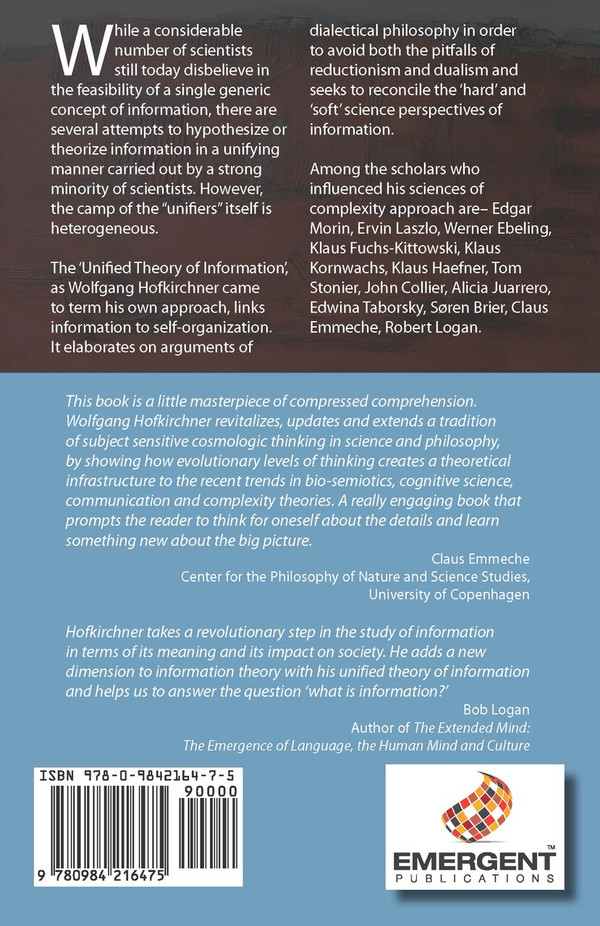
Twenty Questions About a Unified Theory of Information: A Short Exploration into Information from a Complex Systems View (PDF)
While a considerable number of scientists still today disbelieve in the feasibility of a single generic concept of information, there are several attempts to hypothesize or theorize information in a unifying manner carried out by a strong minority of scientists. However, the camp of the “unifiers” itself is heterogeneous.
The ‘Unified Theory of Information’, as Wolfgang Hofkirchner came to term his own approach, links information to self-organization. It elaborates on arguments of dialectical philosophy in order to avoid both the pitfalls of reductionism and dualism and seeks to reconcile the ‘hard’ and ‘soft’ science perspectives of information.
Among the scholars who influenced his sciences of complexity approach are– Edgar Morin, Ervin Laszlo, Werner Ebeling, Klaus Fuchs-Kittowski, Klaus Kornwachs, Klaus Haefner, Tom Stonier, John Collier, Alicia Juarrero, Edwina Taborsky, Søren Brier, Claus Emmeche, Robert Logan.
This book is a little masterpiece of compressed comprehension. Wolfgang Hofkirchner revitalizes, updates and extends a tradition of subject sensitive cosmologic thinking in science and philosophy, by showing how evolutionary levels of thinking creates a theoretical infrastructure to the recent trends in bio-semiotics, cognitive science, communication and complexity theories. A really engaging book that prompts the reader to think for oneself about the details and learn something new about the big picture.
Claus Emmeche
Center for the Philosophy of Nature and Science Studies, University of Copenhagen
Hofkirchner takes a revolutionary step in the study of information in terms of its meaning and its impact on society. He adds a new dimension to information theory with his unified theory of information and helps us to answer the question ‘what is information?’
Bob Logan
Author of The Extended Mind: The Emergence of Language, the Human Mind and Culture
Click here to download detailed contents (PDF format)







